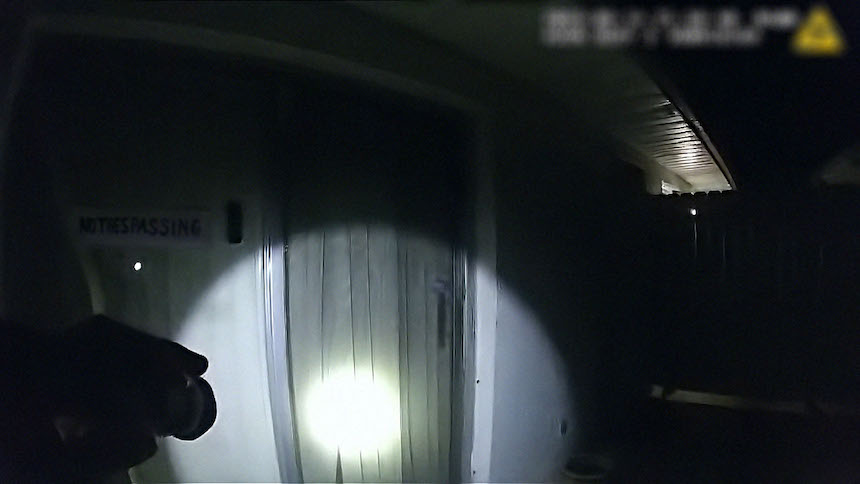Sundance 2025 Review: THE PERFECT NEIGHBOR Looks at Stand Your Ground Laws

Elections have consequences, as pundits keep reminding us. One of those is Florida's "stand your ground" legislation, which allows the use of deadly force if people feel they are in imminent danger.
Composed almost entirely of bodycam and surveillance video, The Perfect Neighbor examines a notorious "stand your ground" incident in detail. For months, Susan Lorincz complained about her Ocala, Florida, neighborhood. She phoned the police repeatedly about trespassers, berated children playing in the yard next to her house, confiscated toys, and even took one child's iPad.
Tensions escalated until Lorincz shot and killed Ajike "AJ" Shantrell Owens, a mother who tried to confront her. The homicide took place on June 2, 2023. Lorincz was found guilty a year-and-a-half later and sentenced to 25 years in prison.
For some days after the killing it wasn't clear that Lorincz would be charged at all, especially after State Attorney Bill Gladson cited "stand your ground" laws. The story attracted national attention, and was seized upon by both left- and right-wing media.
The beauty of director Geeta Gandbhir's documentary is its evenhanded, seemingly objective handling of the material. Reporters can spin the truth or tell outright falsehoods; bodycam footage doesn't lie.
That doesn't mean it can't tell a story, as Gandbhir and her editor Viridiana Lieberman prove. The Perfect Neighbor has a narrative familiar from many true-crime cop shows. It opens with teaser footage from the night of the crime, backtracks to fill in physical details about the Ocala suburban development, then settles in to show Lorincz's many interactions with Ocala police.
Despite the visual shortcomings of police bodycams and dashcams, the film is slickly edited to build drama and suspense. When two police officers have their bodycams on at the same time, Lieberman can even construct entire scenes that play with tempo and pacing.
It's not that The Perfect Neighbor is in any way misleading, it's just that the filmmakers are clearly shaping a story through the footage. When the angles don't work, they might zoom in on an image. Pick-up shots add color to telephone conversations. Composer Laura Heinzinger's ominous music also shades the material.
Media has so infiltrated our lives that the children and parents in the documentary know their "lines." They've seen enough cop shows, enough reality TV, to give what they feel are proper responses when police question them.
Even so, real life breaks through. These are the moments that make the documentary so moving. Told they're acting like kids, one child responds, "We are kids." When a cop asks a young boy if he is hurt, he answers, "No, but my heart is broken."
Surprisingly, what comes across the strongest in the documentary is how good the cops on patrol are. Their forbearance is remarkable, especially when faced with lunatic assertions from Lorincz. Their advice to children and parents alike is admirable. And when detectives question Lorincz in an interrogation room, they very carefully and legally give her enough rope to hang herself on camera.
In one chilling example of the power police wield, a cop says, "You're not under arrest, you're being detained." But on the whole the police behave more calmly and rationally than the people they're protecting. One policeman tells the children, "I want to make you guys look like the good guys."
The Perfect Neighbor won the Directing Award: US Documentary at this year's Sundance Film Festival. Photos: stills from The Perfect Neighbor by Geeta Gandbhir, an official selection of the 2025 Sundance Film Festival. Courtesy of Sundance Institute. Visit the film's page at the official festival site for more information.
The Perfect Neighbor
Director(s)
- Geeta Gandbhir







